Indigenous Governance Database
IGD Database Search
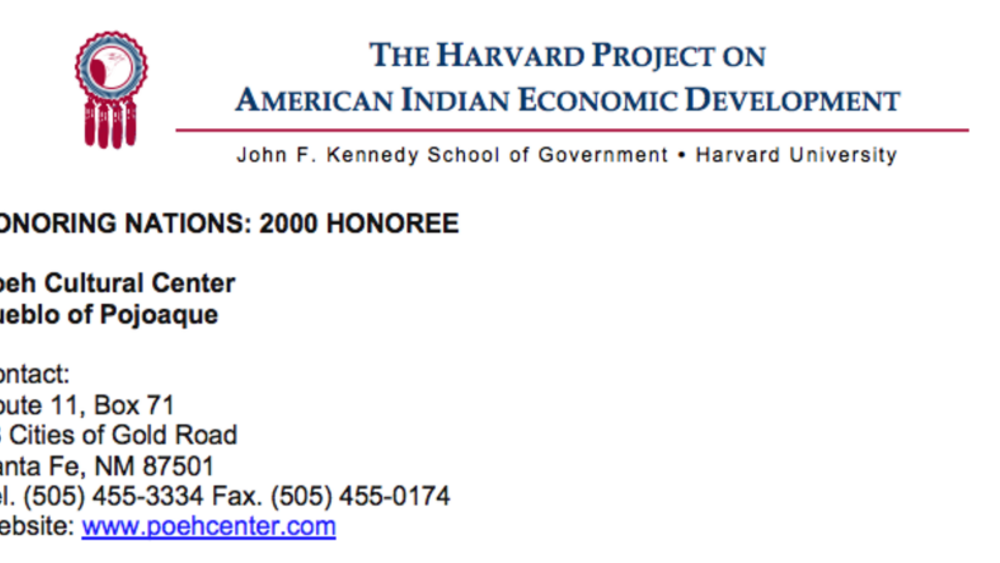
Poeh Center: Sustaining and Constructing Legacies (Pojoaque Pueblo)
Faced with the common challenge of raising funds for construction of a cultural center and museum, the Tribal Council created the Pojoaque Pueblo Construction Services Corporation in 1993. The Corporation’s chartering mandate was to generate revenues for cultural activities and to oversee the…
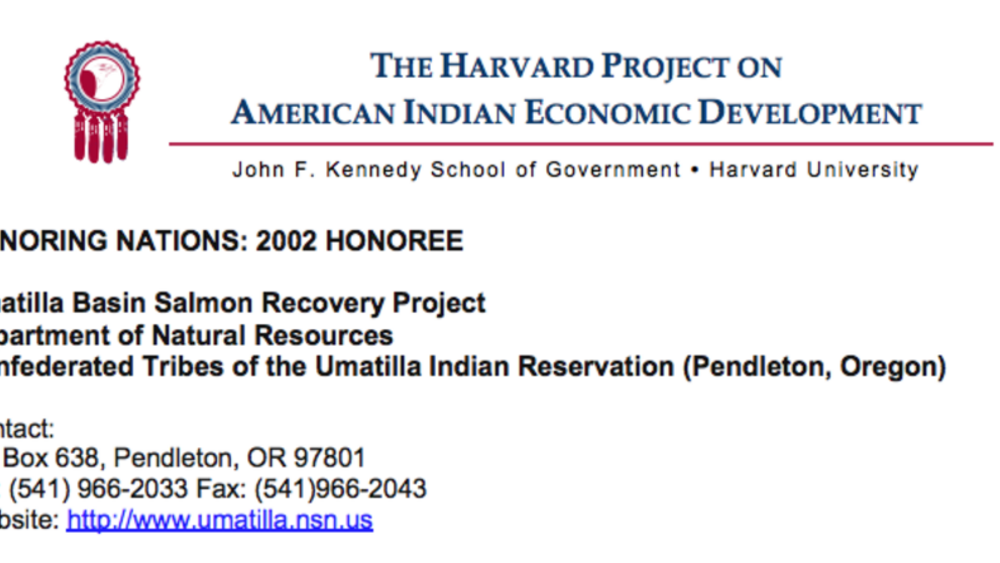
Umatilla Basin Salmon Recovery Project
The Umatilla Basin Salmon Recovery Project has successfully restored salmon to the Umatilla River, where they had been absent for nearly 70 years, while also protecting the local irrigated agriculture economy. Partnering with local irrigators and community leaders, the tribe undertook a…
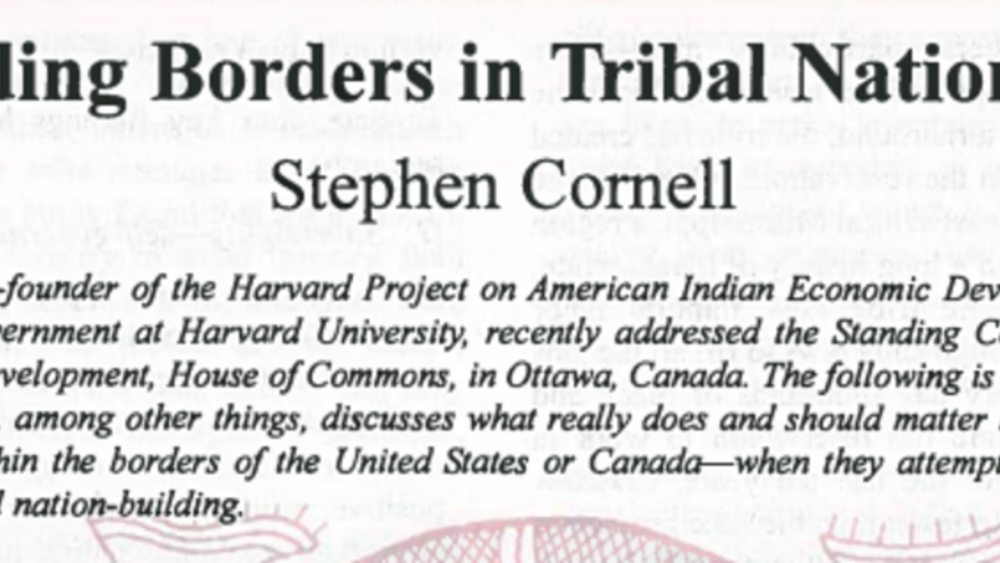
Transcending Borders in Tribal Nation-Building
Dr. Stephen Cornell addressed the Standing Committee on Aboriginal Affairs and Northern Development, House of Commons, in Ottawa, Canada. The following is the excerpted transcript from his address, which, among other things, discusses what really does and should matter to Indigenous peoples--…
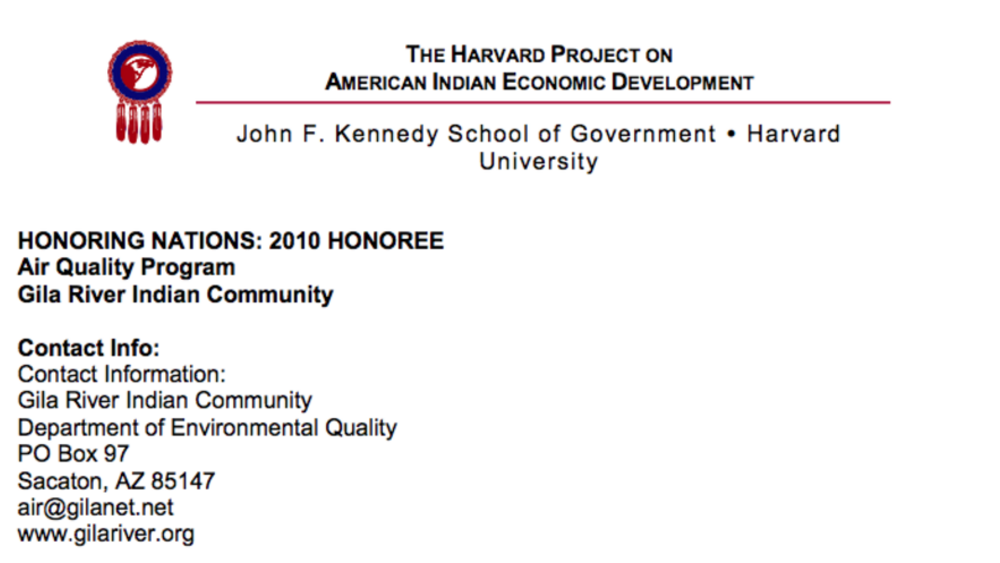
Gila River Indian Community Air Quality Program
In recent years, tribal governments in the United States have passed sophisticated laws and regulations to manage social and economic development in their communities. Although air quality is an important aspect of both economic growth and human health, very few Native nations have successfully…
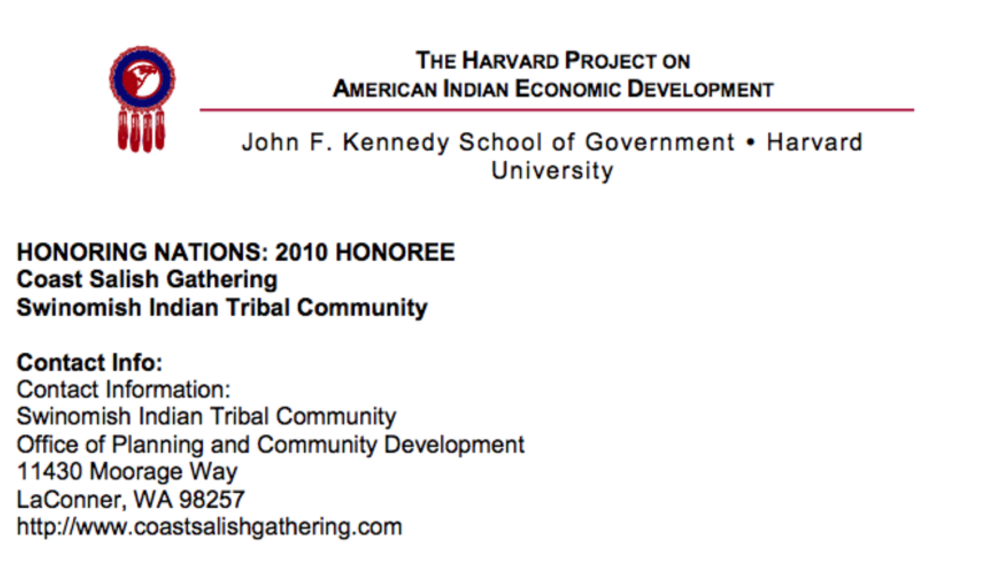
Coast Salish Gathering
Ecosystems in many parts of North America are under severe stress. Pollution, the overuse of natural resources, and habitat destruction threaten local flora and fauna. Conservation attempts often fall short because they target one species of site within an ecosystem. The Coast Salish Gathering…
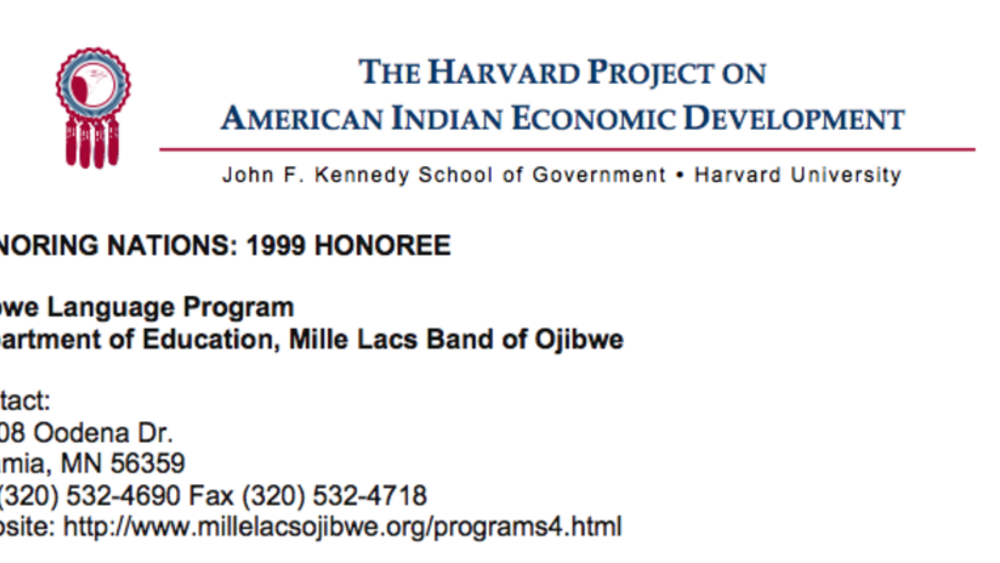
Mille Lacs Ojibwe Language Program
Created in 1995, this tribally funded program serves 350 students (from toddlers to teenagers) and uses elder-youth interaction, song books, and comic books to teach the Ojibwe language. In addition, the Program broadcasts language classes to local public schools in an effort to teach the Ojibwe…
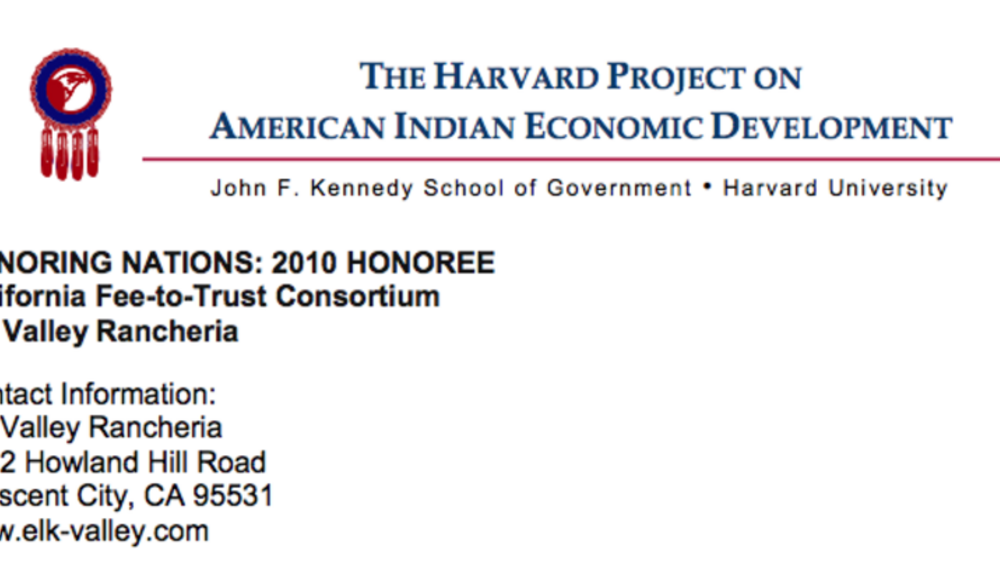
California Fee-to-Trust Consortium
The loss of traditional land is a source of longstanding trauma for Native nations. It has far reaching consequences that began at the time of dispossession and persist today. Many tribes struggle to regain territory in order to support the basic needs of their citizens – housing, economic…
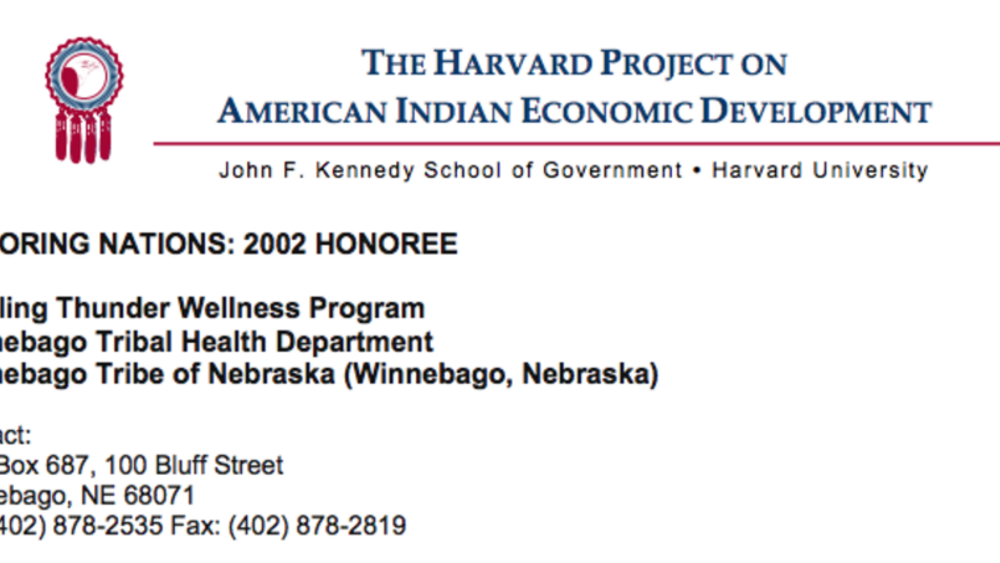
Winnebago's Whirling Thunder Wellness Program
To prevent and control the devastating effects of diabetes and substance abuse, in 1995, the Winnebago Tribe created the Whirling Thunder Wellness Program, which raises community awareness about diabetes and substance abuse, administers primary and secondary prevention services, and encourages…
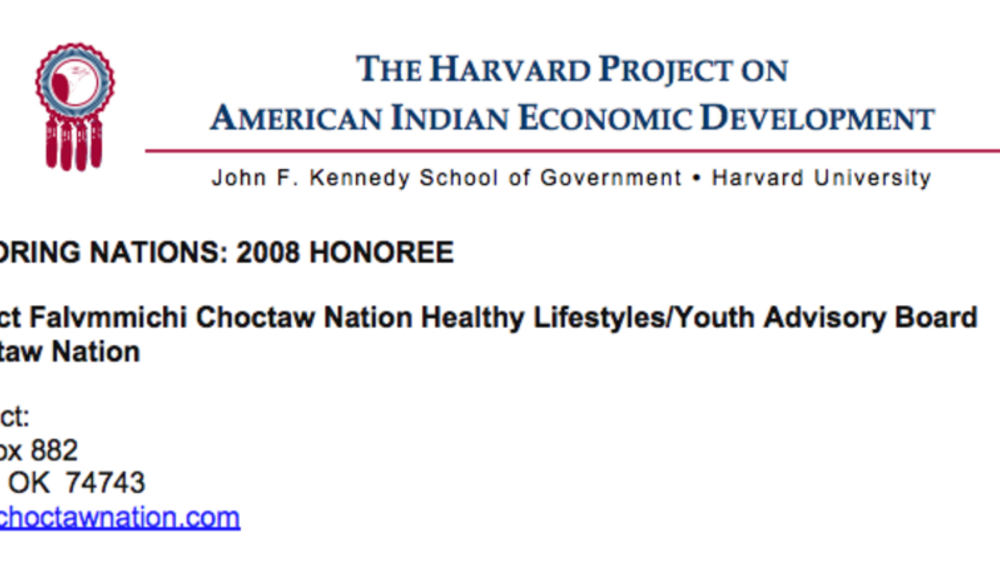
Project Falvmmichi (Choctaw Nation of Oklahoma)
"It is not cool to hit or be hit" is the straightforward motto of Project Falvmmichi, a school-based program of the Choctaw Nation designed to tackle the problem of domestic violence. The program teaches elementary school students positive ways to deal with anger and resolve conflicts. Today, more…
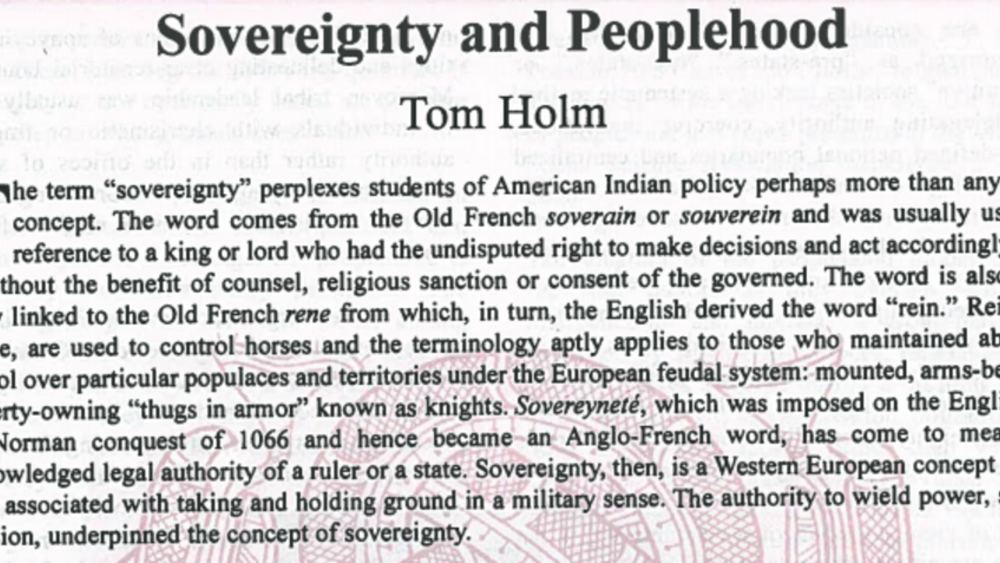
Sovereignty and Peoplehood
The term "sovereignty" perplexes students of the American Indian policy perhaps more than any other concept. The word comes from the Old French soverain or souverein and was usually used in reference to a king or lord who had the undisputed right to make decisions and act accordingly with or…
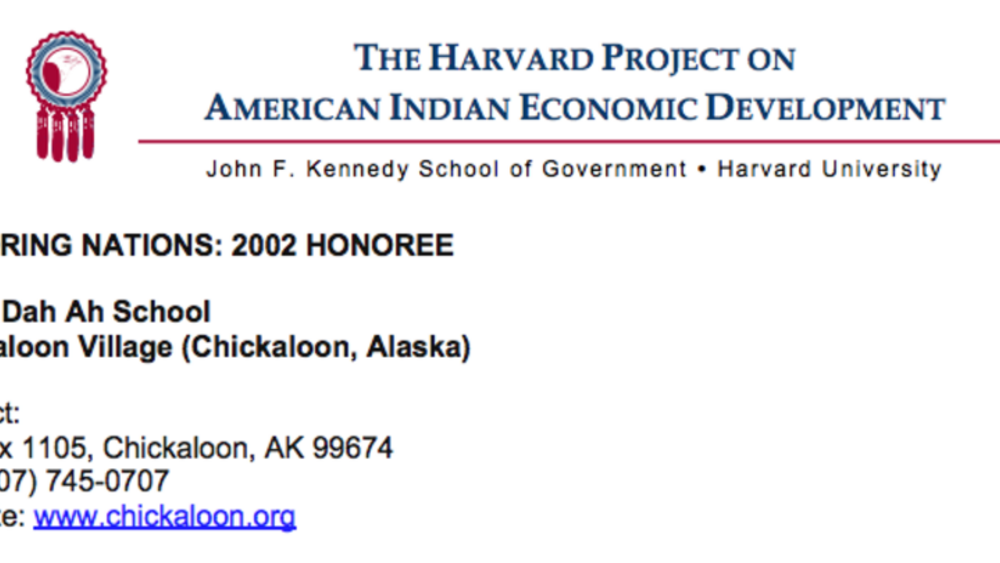
Chickaloon Village: Ya Ne Dah Ah School
Dedicated to giving community youth the skills necessary for functioning in a modern world while retaining and facilitating traditional knowledge and practices, the Ya Ne Dah Ah is Alaska’s only tribally owned and operated full-time primary school and day care facility. Located in a one-room…
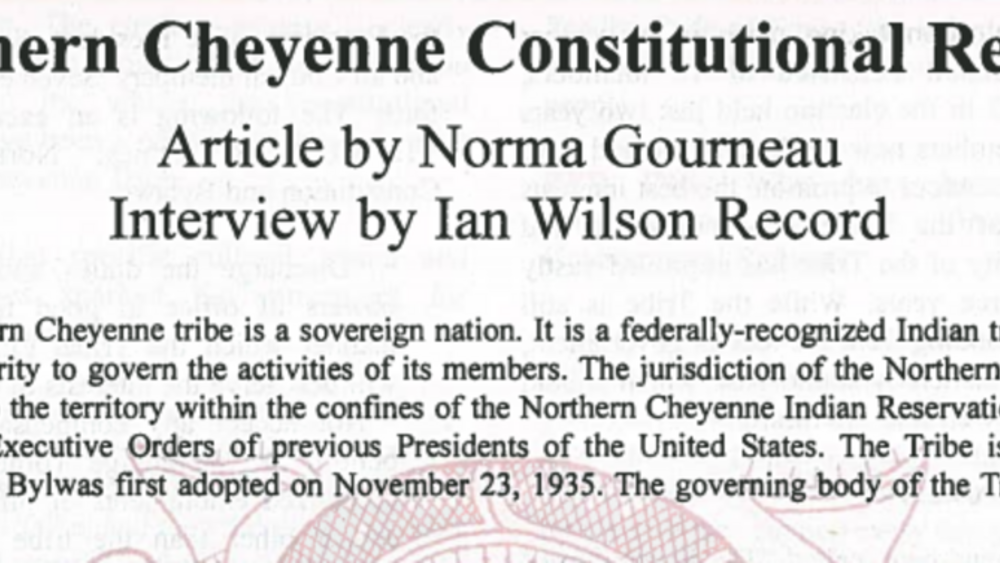
Northern Cheyenne Constitutional Reform
The Northern Cheyenne Tribe is a sovereign nation. It is a federally-recognized Indian tribe with powers and authority to govern the activities of its members. The Tribe is governed by a Constitution and Bylaws first adopted on November 23, 1935. In the early 1990s, in order to meet the…
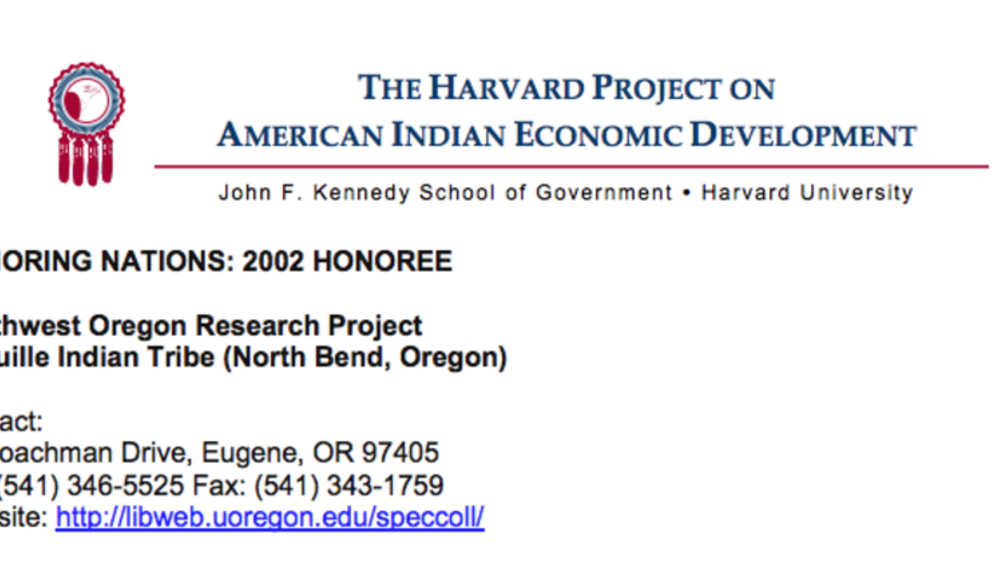
Coquille: Southwest Oregon Research Project (SWORP)
Driven by the belief that possessing historical documents and archival collections is essential for cultural self-determination, the Coquille Indian Tribe partnered with the University of Oregon and the Smithsonian Institution to launch the Southwest Oregon Research Project (SWORP) in 1995. Through…
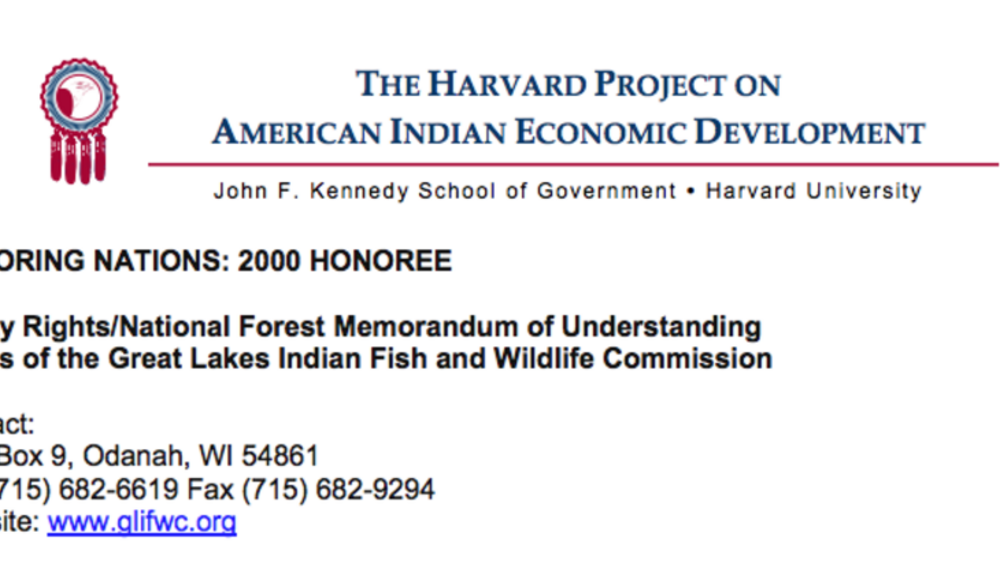
Great Lakes Indian Fish and Wildlife Commission's Treaty Rights/National Forest MOU
The Great Lakes Indian Fish and Wildlife Commission (GLIFWC), a tribally chartered intertribal agency, negotiated a memorandum of understanding (MOU) with the US Forest Service that both recognizes and implements treaty-guaranteed hunting, fishing, and gathering rights under tribal regulations and…
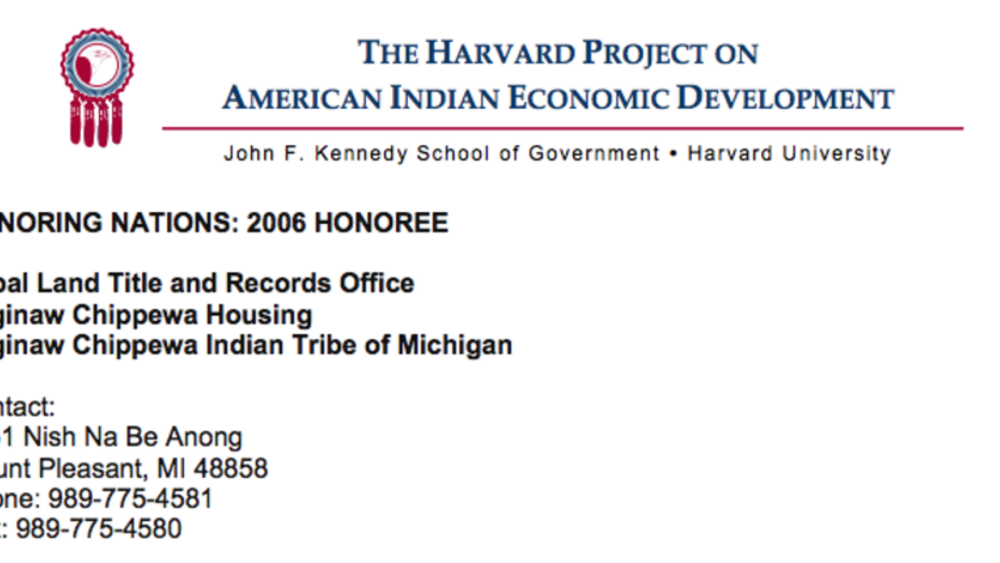
Saginaw Chippewa Tribal Land Title and Records Office
With the ultimate goal of seeing a time when Native people and nations once again own and manage the land within the boundaries of every reservation as well as those lands that are culturally important to them beyond reservations, the Tribal Land Title and Records Office keeps all records and…
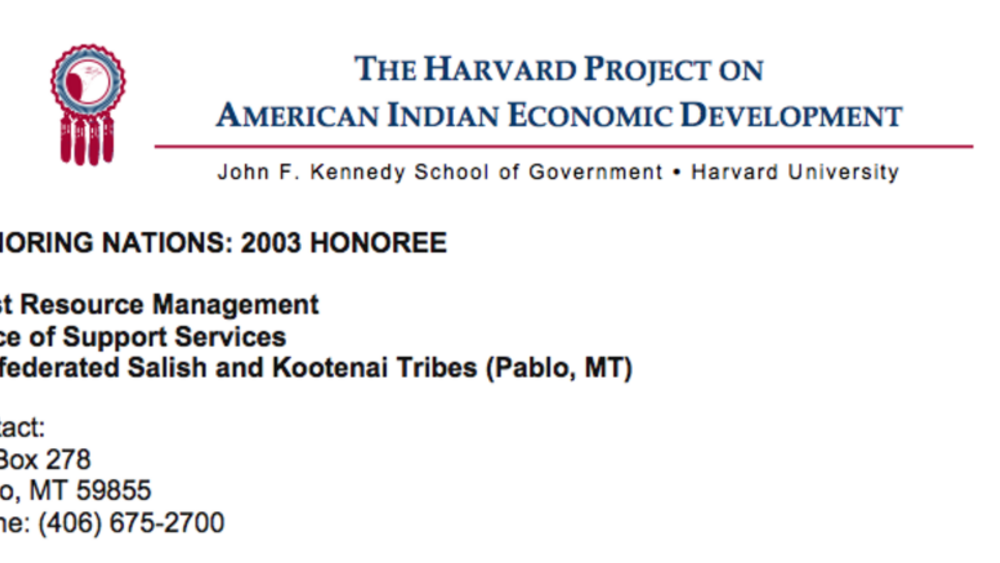
Trust Resource Management (Salish and Kootenai)
For more than three decades, the Confederated Salish and Kootenai Tribes (CSKT) have been building capable governing institutions and taking over management of resources and programs previously managed by outsiders. Recognizing that self-management both allows the tribal government to determine its…

Water Quality Standards (Sandia)
Responding to the severe contamination of the Rio Grande River that threatens human health and ceremonial uses of the water, the Pueblo was awarded "treatment as state" status in 1990. Subsequently, the Pueblo developed and implemented US EPA approved water quality standards that give it control…
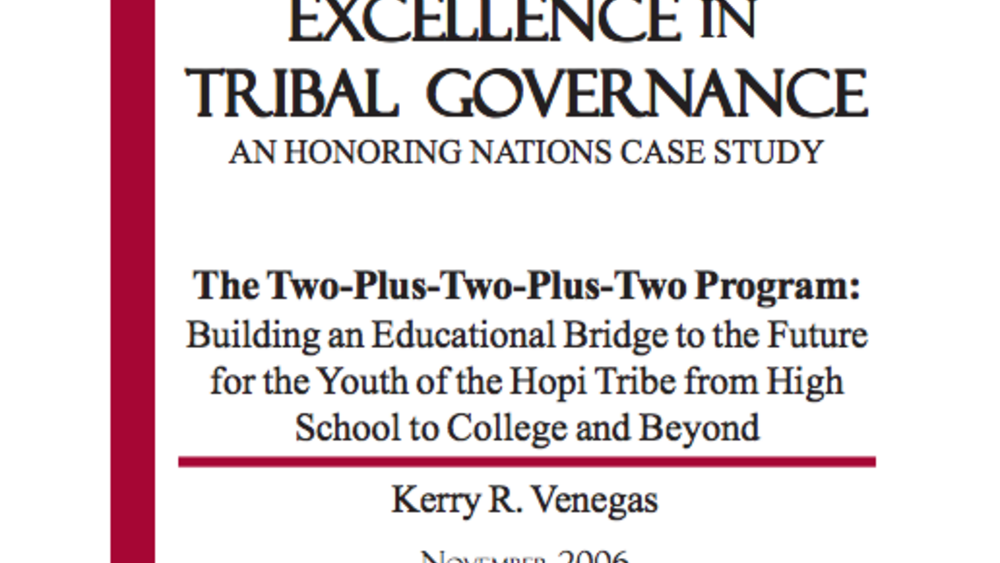
The Two-Plus-Two-Plus-Two Program: Building an Educational Bridge to the Future for the Youth of the Hopi Tribe from High School to College and Beyond
Over the last 30 years, Native nations across North America have been taking control of their educational systems in the belief that American Indian “self-determination and local control [are] means of cultural preservation and growth.” Disturbed by the low achievement scores…
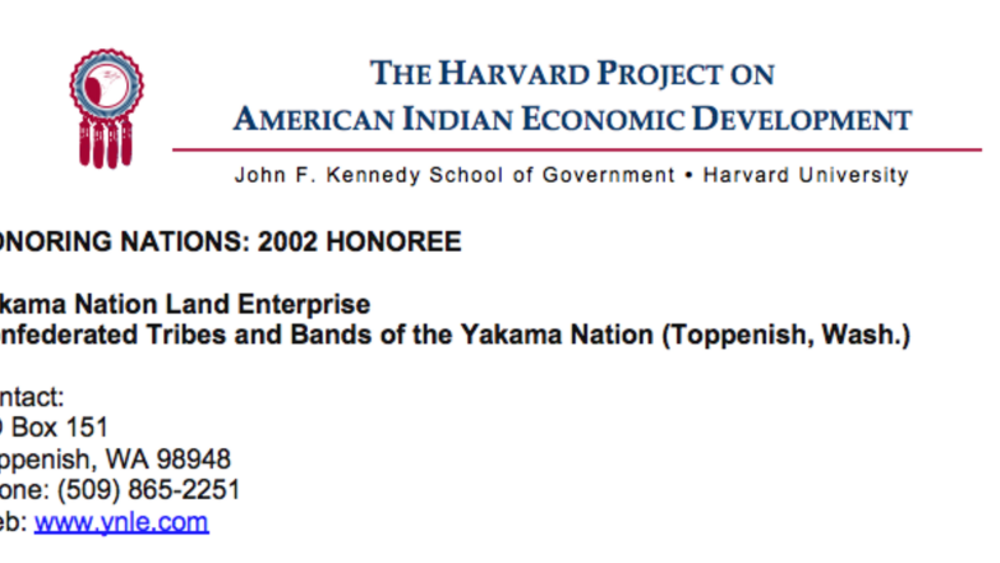
Yakama Nation Land Enterprise
In an effort to consolidate, regulate, and control Indian land holdings, the financially self-sustaining Yakama Nation Land Enterprise has successfully acquired more than 90% of all the fee lands within the Nation’s closed area — lands which were previously highly "checker-boarded." The Enterprise’…
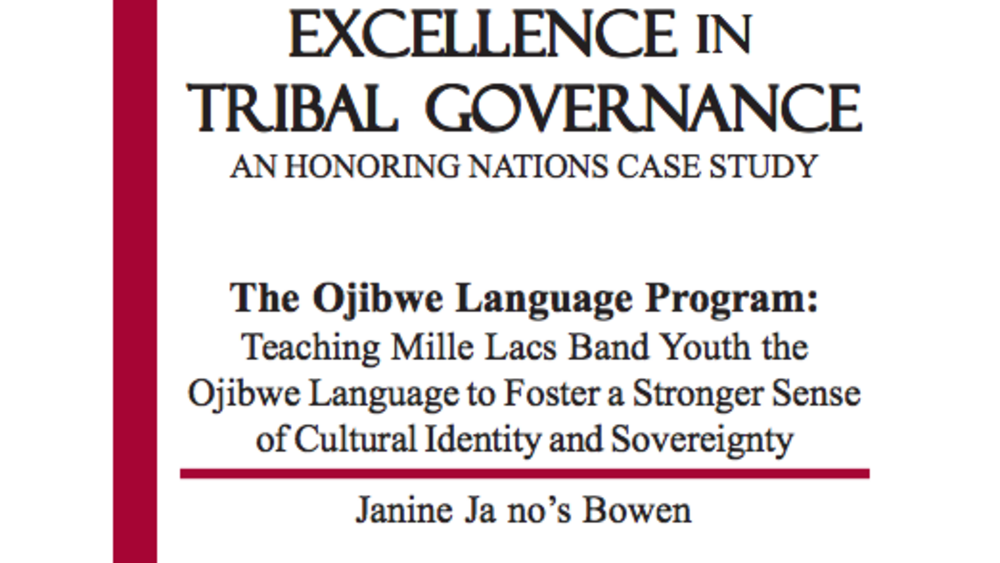
The Ojibwe Language Program: Teaching Mille Lacs Band Youth the Ojibwe Language to Foster a Stronger Sense of Cultural Identity and Sovereignty
As part of its effort to assimilate American Indians into mainstream society, the federal government launched an assault on Native languages. For example, in the 1890s the government built twenty-five off-reservation boarding schools to which many Indian children were forcibly…
Pagination
- First page
- …
- 24
- 25
- 26
- …
- Last page
